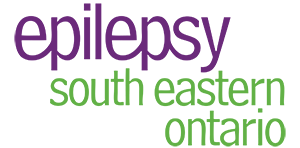I was diagnosed with epilepsy in February of 2009, after two years of undefined episodes, which I now understand were a type of seizure, and two tonic clonic seizures. When I first received the diagnosis, I had difficulty understanding what had happened, what this meant, and what it would change about myself. This is because epilepsy is a condition that is not discussed by many.
I have been told by many over the years that I am ͞epileptic͟, or that the first thing they think about me is my diagnosis. Because of this, it took many years to become comfortable with sharing my diagnosis with others, out of fear of judgement or rejection. I now appreciate the fact that I do have epilepsy and that it has helped to shape my own identity; but I also know that one does not have to be defined solely by their condition.
Over the past 6 years, I made the decision to try a combination of medications, and eventually neurosurgeries. One thing I learned over this process was a need to care for myself and put my health as a priority.
Being involved in the Grade 5 “Thinking About Epilepsy” program, as well as acting as a peer mentor through the Epilepsy South Eastern Ontario has been a privilege. It is wonderful to be surrounded by those who understand and share an interest in seizures and seizure disorders, as well as sharing information with those around us.
When volunteering with the presentations that are conducted in Grade 5 classrooms, it has been delightful to see so many children opening their eyes to something that, in my opinion, everyone should know. It is valuable to be discussing the stigmas and misunderstandings that still exist about epilepsy.
It is so important to get the word out about this agency, as it will help to raise awareness not only about epilepsy, but also about the support and services they offer. The resources offered allow those in the community who have friends or family who have been diagnosed – or who have been personally affected – to learn more, meet those who have similar experiences, and much more. I wish I had known about the support and services that Epilepsy South Eastern Ontario offered throughout my journey with epilepsy, from diagnosis to surgery. Even though I had a great support system of friends and family, I know that having a connection with the organization would have made the transition easier. That is why it is so important to spread the word about epilepsy and Epilepsy South Eastern Ontario; otherwise, those who could benefit most from their services may not receive them.
Epilepsy does not define who I am, but after many medications and three surgeries, it has helped to shape the ways in which I interact with the world. I love the opportunity of being able to spread the word and support people around me.
